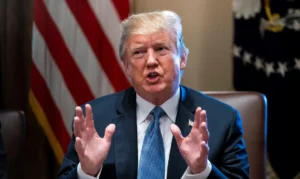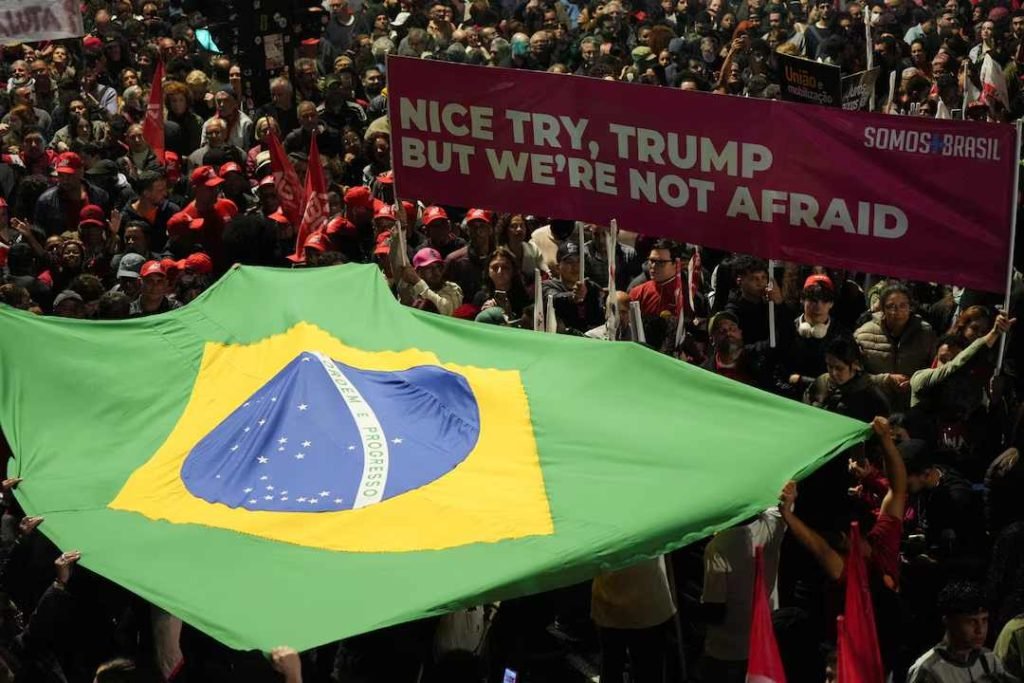
I increasingly understand Napoleon’s maxim: one should never interrupt an enemy when he is making a mistake. In politics, as in war, victories are won not only by our successes but also by the adversaries’ mistakes. The servile support of the Bolsonaro family and their vassals on the far-right, including São Paulo Governor Tarcísio de Freitas, for Donald Trump’s arbitrary, unjustified, and arrogant aggressions against Brazil, was very poorly received by public opinion. All those who explicitly or tacitly (by remaining silent, for example) supported this grotesque attempt to humiliate Brazil, to subjugate our institutions and our democracy, committed political suicide.
Donald Trump’s despicable attack on our sovereignty caused a true earthquake in Brazilian politics, with immediate repercussions on the government’s approval ratings and the electoral prospects for 2026. The tectonic plates shifted, and not in favor of the submissive, corrupt, and subservient right-wing. According to an Atlas/Bloomberg survey released today, the percentage of Brazilians who now support the Lula government’s foreign policy jumped from 50% in November 2023 (the last time Atlas asked this question, and it was already a great number) to a record high of 60%!
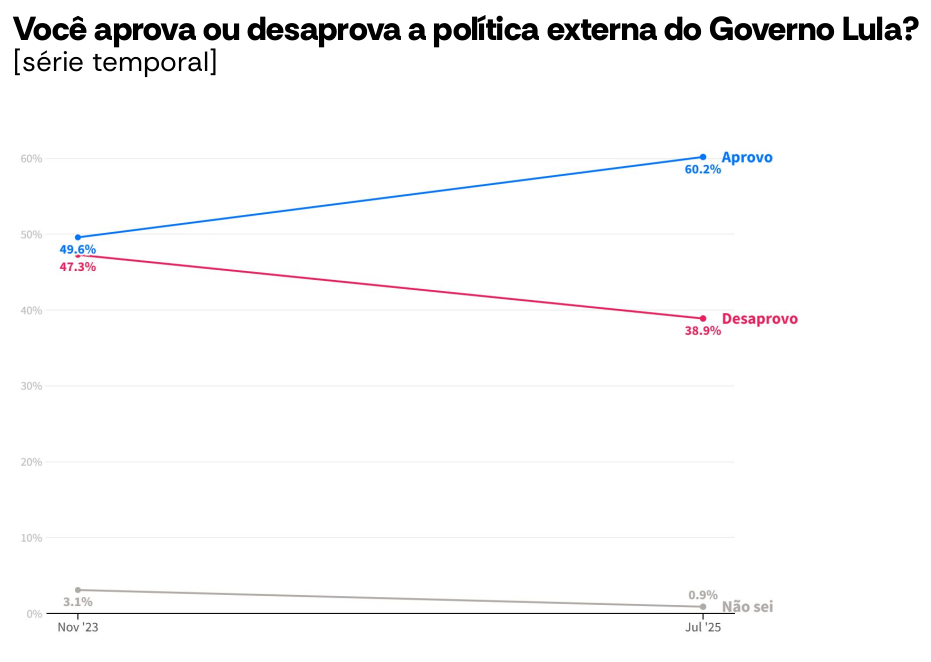
The Awakening of National Sentiment
A nerve was touched in Brazil.
Trump’s attacks on national sovereignty awakened a patriotic sentiment not seen in a long time. The Atlas/Bloomberg survey confirms what was already easy to observe on social media: a giant wave of indignation against Donald Trump and against politicians who did not react immediately with a firm stance in defense of national sovereignty. The negative reaction was especially strong against Tarcísio de Freitas, who tried to justify Trump’s violence against Brazil and blame President Lula for the authoritarian whims of a head of state who fancies himself the owner of the world. According to Atlas/Bloomberg, Lula’s approval rose from 47.3% to 50%, while his disapproval fell from 51.8% to 50.3%. A total improvement of 4 points in favor of Lula. Experienced analysts often say that approval ratings above 50% create the possibility of a first-round victory in presidential elections.
It is important to note, however, that the president’s approval had already been growing even before these Trump attacks, probably due to the cooling of food inflation, a factor that, apparently, has a direct correlation with Lula’s approval among low-income families.
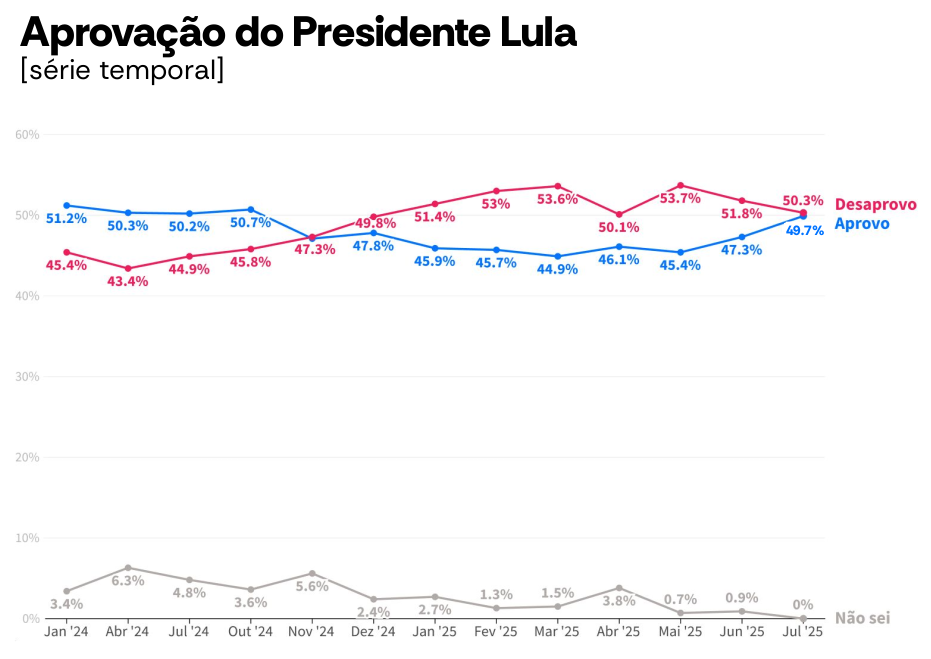
The Strength of Foreign Policy
The survey shows that 61.1% of Brazilians believe Lula represents Brazil better than Bolsonaro on the international stage, compared to only 38.8% who think otherwise. Another very emblematic data point: for the first time, more Brazilians (38%) prefer Brazil to be closer to the BRICS than to the United States (31%).
The image of China has also improved: while in May 2025, only 4% responded that Brazil should get closer to China, today that number has tripled to 12%. This is a very strong and resilient type of sentiment because it goes beyond economics and beyond that typical throat-clearing moralism of anti-politics common sense. It will be complicated for conservative and liberal media, right-wing parties, and Faria influencers to deconstruct a patriotic sentiment emerging from the depths of popular consciousness.
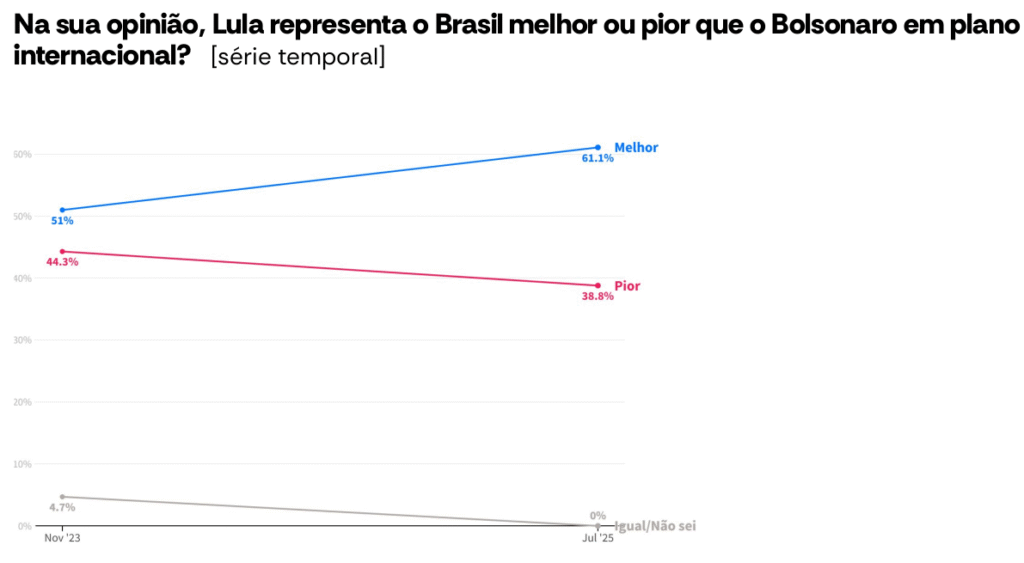
Rejection of Tariffs and Trump
Donald Trump’s personal image among Brazilians has deteriorated dramatically: 63.2% now have a negative view of the former American president, compared to only 31.9% who maintain a positive view. These numbers show that Trump has no political capital in Brazil to sustain his attacks against the country. On the contrary, his actions only strengthen popular rejection and consolidate support for the Lula government’s firm stance. The economic impact of Trump’s tariffs also concerns Brazilians: 63.5% believe that the measures will have a high or very high impact on the national economy. This rejection of Trump is not artificial, puerile, or aesthetic: half of Brazilians understand that the justifications used by the American president to impose tariffs on Brazil can be considered a “threat to Brazilian sovereignty.”
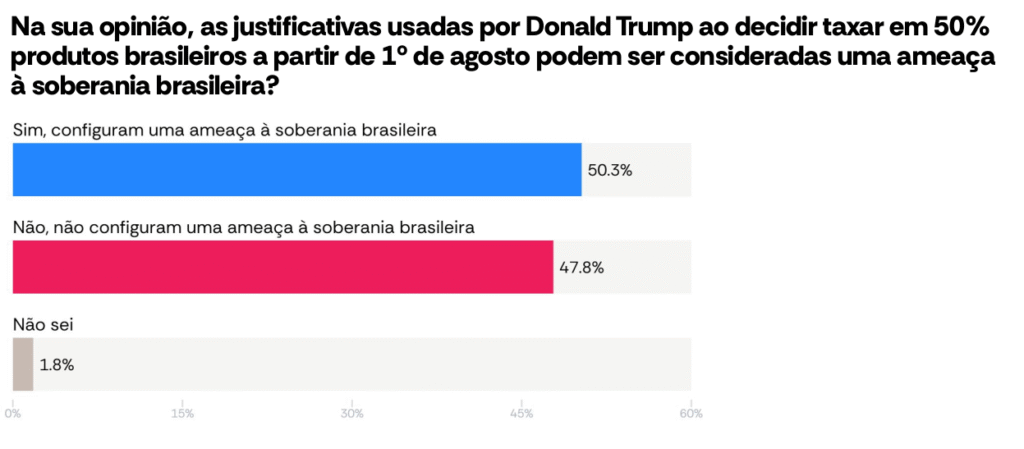
Negotiation Capacity
Even so, there is cautious optimism about Brazil’s negotiation capacity. When asked if they believe the federal government will be able to negotiate and reach an agreement with the United States to reduce tariffs, 47.9% of Brazilians answered yes, against 38.8% who do not believe in this possibility. Among Lula’s voters, optimism is even higher: 78.6% believe in the government’s negotiation capacity, while only 3.9% are pessimistic.
Electoral Consequences
The political consequences of this episode may go beyond presidential approval ratings. At the end of the military dictatorship, the right-wing faced great difficulty for having associated itself with the dictatorship and, therefore, with the image of being an enemy of democracy. What may happen today is something similar. Should it remain tied to this desperate and suicidal Bolsonarism, the Brazilian right-wing may brand itself as an enemy of our sovereignty. Which might be an even worse stigma.
Trump and his Brazilian allies committed a monumental strategic error by underestimating the patriotic sentiment of the Brazilian people. The attempt by Tarcísio de Freitas, and other right-wing leaders, to minimize Trump’s aggressions or to blame the Brazilian government for the trade escalation proved to be a self-inflicted wound. The Brazilian population, regardless of their party preferences, does not passively accept attacks on national sovereignty, in addition to considering Trump’s tariffs as totally unjustified.
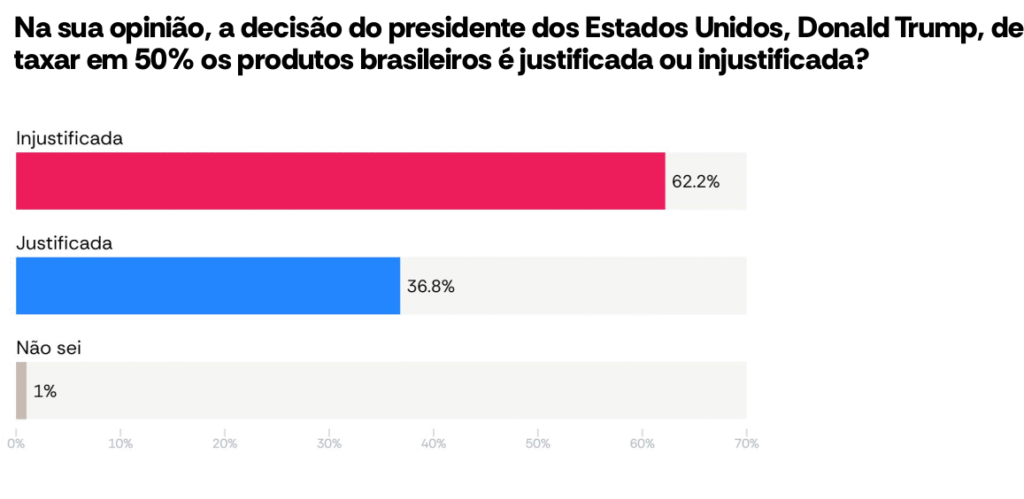
For the Lula government, this episode represents a unique opportunity to consolidate its leadership both domestically and on the international stage. The high approval of its foreign policy offers a solid basis for building a powerful discourse in defense of Brazilian sovereignty, which could be a very effective symbolic lever in next year’s elections, including for the legislature.
The Bolsonaro family dragged its base into a position of support for Donald Trump, precisely at a moment when the majority of the country reacted with deep indignation to the attacks that the American president began to make on our democratic institutions. The right-wing, therefore, finds itself facing an insoluble dilemma. On one hand, maintaining alignment with Trump means definitively abandoning any patriotic pretension and publicly assuming the role of subservience to foreign interests. Breaking with Trump, on the other hand, would mean accusing the Bolsonaro family of treason to the country, and losing a good part of that highly radicalized, almost fanatical electorate that gathers around the former president.
You can download the complete Atlas/Bloomberg survey here.







